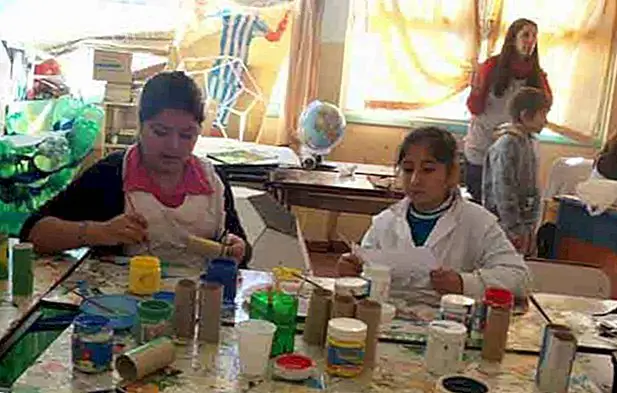
The so-called Slow Parenting is a simplified, patient and conscious style of parenthood, which proposes to allow children to develop based on their own achievements without controlling their training, leisure, or excessively. and security
We owe this idea to Canadian nurse Jean Alice Rowcliffe, who worked more than 30 years as a caregiver in homes in the United States and the United Kingdom (even working for the British Royal House). All this accumulated experience and contact with many different families led her to embark on a particular mission: remind families of the value of parenthood itself, teach them to relax the pace of parenting by enjoying of every moment of the child's development. He considers that it is not necessary to organize every minute of the life of the children, because they already have a way of learning: the game. Indeed, one of the slogans of this educational style says: the work of children is to play .

Children need to play, get bored, make mistakes, fall down, because all this is in itself an apprenticeship.
Rowcliffe reacts against the culture of over-stimulation, obsessed with perfection and preparation, ultra-planned and that only values achievement. This type of education produces children who lack tools for self-discovery and exploration. On the contrary, Slow Parenting has a decalogue in which the game is urged, to reduce contact with technology and increase it with nature, which recovers the sense of community and family as the child's first schools and insists that Children need limits and moments of tranquility, in the face of saturation and today's busy schedules:
Ten Principles of the Slow Parenting Movement:1. Turn off the technology for at least one hour each day (more is preferable).
2. BE the father, stop trying to be friends with your child.
3. Cultivate the ability to observe your child and other children, and keep these observations in mind. Notice the differences in the development of different ages.
4. Houses are the first schools, parents are the first teachers. Understand and value the importance of your role.
5. A child's job is to play.
6. You give life, but it is NOT your child's life.
7. It's okay to say no. Set limits
8. Less is more, creativity is often born of boredom.
9. Understand, respect and honor the community (family), both inside and outside the home
10. Learn to cultivate quiet spaces during the day and make time to empty your mind. Open to gratitude and admiration. (Translation of the Slow Parenting Movement page)

One of the slogans of this educational style says: " children's work is to play ".
With these characteristics, Slow Parenting is also circumscribed within the Slow Movement, where it has defenders such as Carl Honoré, author of the book Under Pressure and ambassador of the Slow philosophy, based on simplifying the way of life, lowering the pace of activity and enjoying more, eat slowly, walk, rest.
Slow Parenting does not give up parent training or learn different parental styles and tools, but advocates common sense and because each family finds the formula that best suits it.
Source: UP Universe
Source : https://cambiemoslaeducacion.wordpress.com/
Slow Parenting






